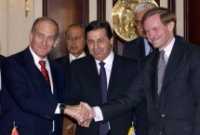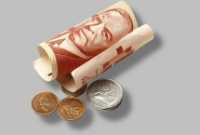According to the World Bank "Doing Business in 2006: Creating Jobs" report, published last week, Israel ranked 29th among 155 countries for business friendliness. The World Bank’s ease-of-doing-business index ranks 155 economies worldwide.
The report tracksseveral criteria: the number of work days it takes to receive a license to open a businessstartup;the time and cost associated with various government requirements,the ease of hiring or firing workers; investors ability to get their money back in a bankruptcy;payment of taxesand the ability to enforce contracts through courts.
New Zealand came in first as having the best business environment,followed by Singapore, the U.S. and Canada, Norway, Australia, and Hong Kong, the UK, Denmark, Japan, and Ireland.
Israel was ranked sixth in protecting investors, eleventh in trading access across borders, and twelfth in starting a business and getting credit. But it was ranked 83rd in dealing with licenses, 97th in paying taxes, 103rd in enforcing contracts, and 134th in registering property. South Africa preceded Israel on the list, and Spain followed.
In a separate publication made by Canada’s Fraser Institute, under the heading " Economic Freedom of the World” Israel is ranked 50th in the institute rated economic freedom for 2003
Hong Kong is rated at the first place, followed by Singapore. The US, New Zealand and Switzerland ranked for third place. Russia ranked 115th place with Rwanda and Togo; Venezuela and the Democratic Republic of the Congo (Kinshasa) ranked 124 place, and Myanmar closed the list in 127th place.
The ranking is based on weighted indicators such as the size of government; access to sound money, legal structure and security of property rights; freedom to exchange with foreigners; and regulation of credit, labor and business.
New Zealand first, Israel 29th on WB global business-friendly list
According to the World Bank "Doing Business in 2006: Creating Jobs" report, published last week, Israel ranked 29th among 155 countries for business friendliness. The World Bank’s ease-of-doing-business index ranks 155 economies worldwide
19.09.05 / 00:00
More articles that may interest you

Israel and Egypt want US administration to expand QIZ agreement

August - Polished diamond exports up 15% to $448m

1H : Food exports up 15.7%

Hurricane Katrina relief efforts - Israeli cos donating millions
CBS : in second quarter Israel’s terms of trade improved 2.8%

Tax Authority : Economy growing faster
More news from Industry & Trade Section
>India-Israel trade continues to grow/12.09.05
>Annualized inflation rate in trend figures reached 4.4%/05.09.05
>Shoval: trade gap with US must be narrowed/05.09.05
>After 10 years, Citrus exports up/05.09.05
>Industrial exports was 4% up in April-July/05.09.05
>In 2005 Industrial investment will rise 6%/05.09.05
>Ministry of Industry: Export growth slowing/05.09.05
>H1 : Israel’s exports to Arab countries up 21%/29.08.05
>Israeli trade delegation visited Peru/29.08.05
>Bank of Israel : State of the Economy index up 0.1% in July/29.08.05